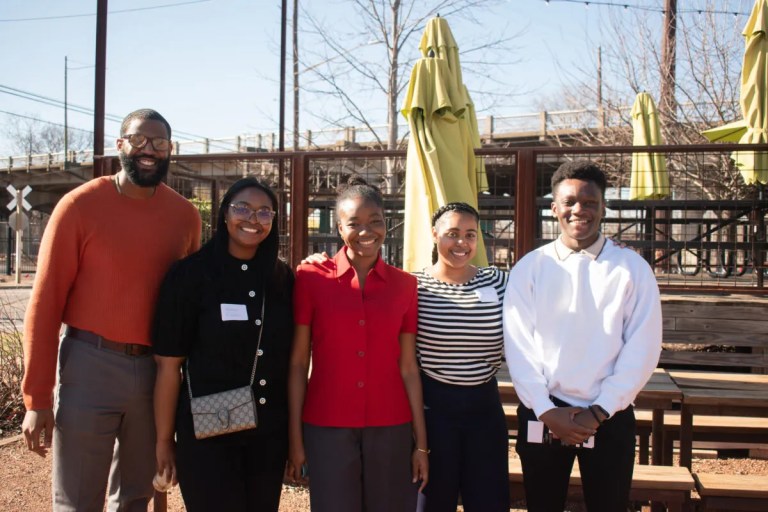3 ways Georgia-Pacific practices sustainability in Alabama
Reading time: 4 minutes
Sponsored

Back in December, fellow Bham Nower Matt Niblett and I took a trip down to Monroe County to get a behind-the-scenes look at the Georgia-Pacific pulp mill. Since then, I’ve been eager to learn more about how Georgia-Pacific is committed to environmental sustainability throughout the Southeast. Here’s what I found out.
Not Familiar with Georgia-Pacific?

Although you might not be familiar with the name, you’ve definitely used Georgia-Pacific products. Georgia-Pacific is one of the world’s leading manufacturers of absorbent materials like paper towels and napkins, bath tissue and tableware.
In fact, their consumer products are found in more than 65% of U.S. households.
Taking Sustainability Seriously

During our trip to the Georgia-Pacific Alabama River Cellulose (ARC) facility, I was very impressed with how seriously they take their role in the local ecosystem. For instance, ARC supports and works alongside the Sustainable Forestry Initiative (SFI), an organization dedicated to advance sustainability through forest-focused collaborations.
1. Switching to Sustainable and Renewable Energy

At Alabama River Cellulose, the team generates 90% of their facility’s power through renewable resources—plus, they are a net seller of electrical power, meaning they produce more energy than they consume.
Since 2013, Georgia-Pacific facilities have been switching over to renewable energy. Although switching is expensive in the short term, the long-term savings and environmental benefits are expected to be worth the cost in the long run, according to Georgia-Pacific. Now, Georgia-Pacific’s main source of energy comes from biomass—wood fiber, bark, and other organic materials left over from the pulp-making process.
2. Maintaining and Improving Local Forests

Since Georgia-Pacific relies on forests’ natural resources for their products, they understand just how important forests are.
- Through direct investments in conservation projects, Georgia-Pacific has helped plant over 1 million trees in the U.S.
- Furthermore, Georgia-Pacific has planted 400,000+ trees in the areas around their facilities.
- For every tree used by Georgia-Pacific, they make sure at least 1 tree is planted in return.
Similarly, Georgia-Pacific is very particular about where they purchase timber. In addition to relying on their own sources, Georgia-Pacific has developed a forest mapping program that helps them identify and protect forests with unique or rare qualities.
3. Supporting Local Wildlife Conservation and Biodiversity

As you may already know, Alabama is one of the most biodiverse states in the union, so it’s important for both people and businesses to protect one of our most unique qualities.
Did you know some soaps and detergents contain chemicals that, when leaked into water, can be incredibly harmful to local aquatic life? Georgia-Pacific does, which is why they intentionally made their soap and detergent products safer for aquatic life—an act that is huge for threatened species of fish, such as Birmingham’s own rare watercress darter.
Meanwhile, the team at Alabama River Cellulose worked for two years to receive the Wildlife Habitat Council Conservation Certification in 2018. To qualify, the team devised a timber management plan that takes care of habitats for local species such as white-tailed deer, turkeys and songbirds. In addition, employees built 10 bluebird houses across the campus.
Want to Learn More About Georgia-Pacific?

Facebook | Twitter | YouTube | Instagram | LinkedIn
If you want to learn more about Georgia-Pacific, the products they make or other ways they are committed to fostering sustainability throughout the country, be sure to check out their website.
Do you use sustainable products made by Georgia-Pacific? Tag @bhamnow and let us know!
Sponsored by:


